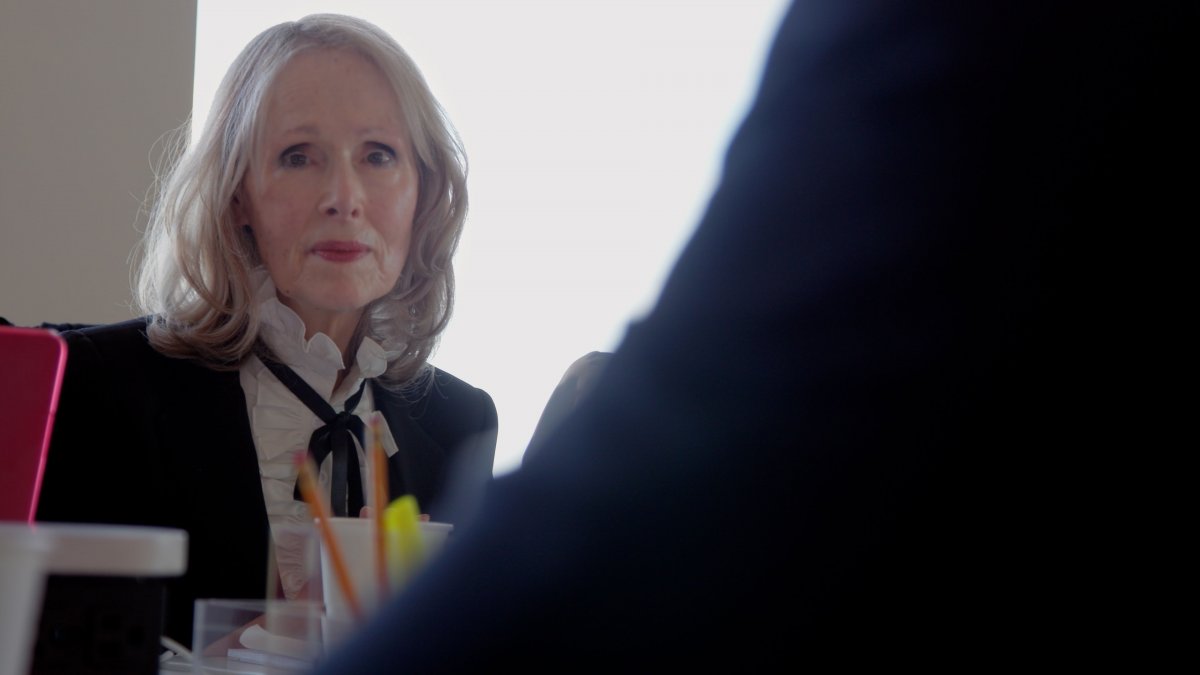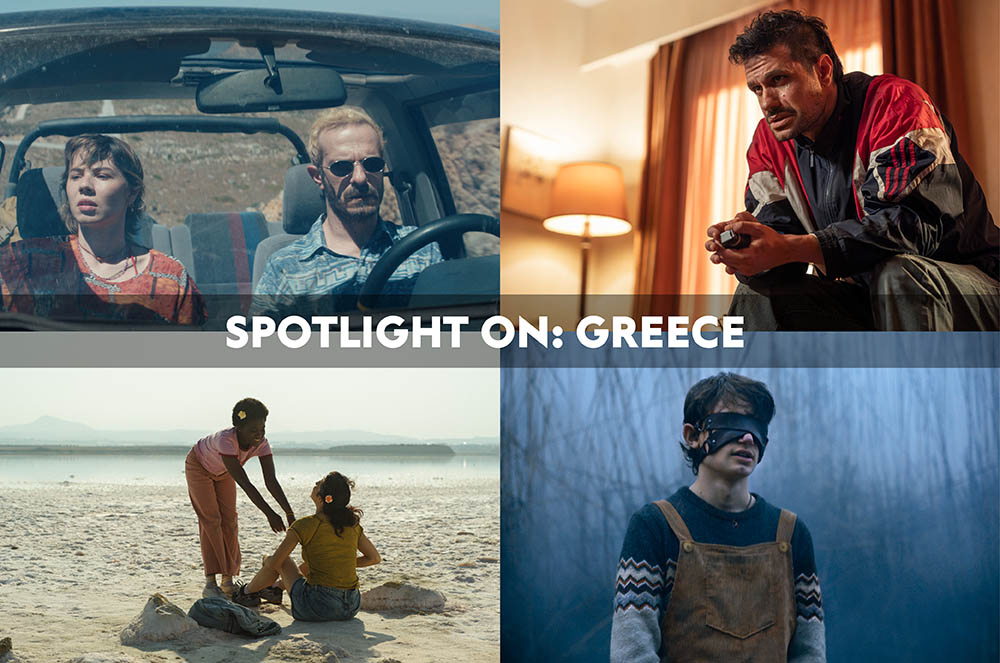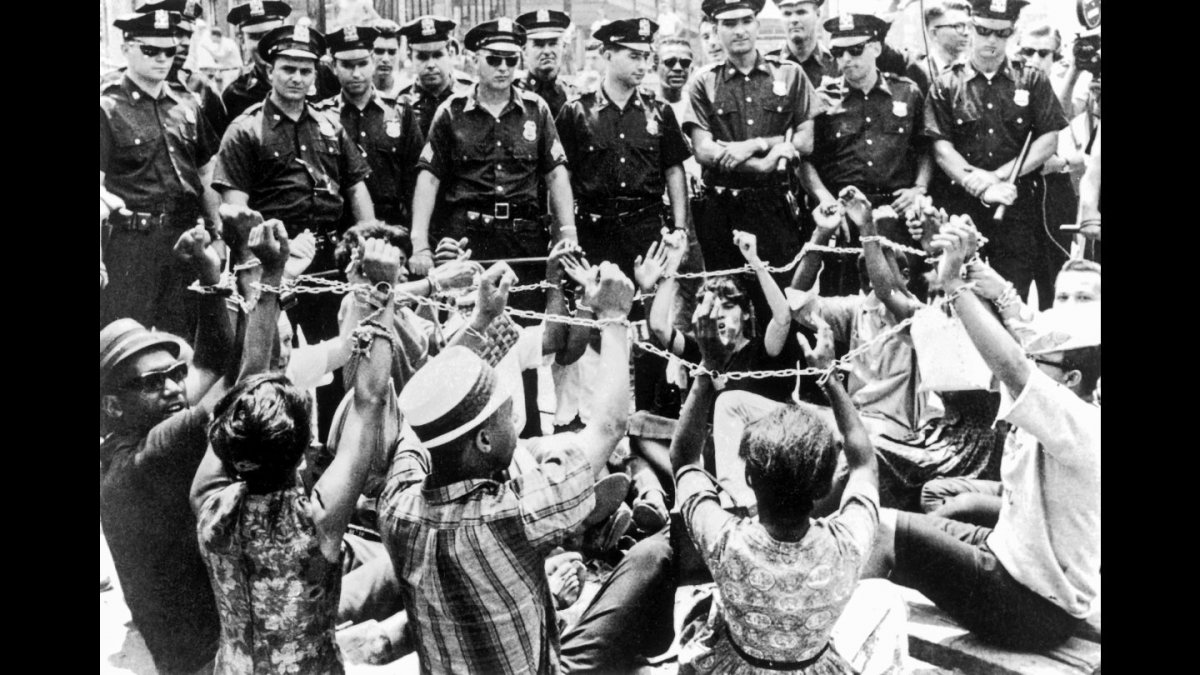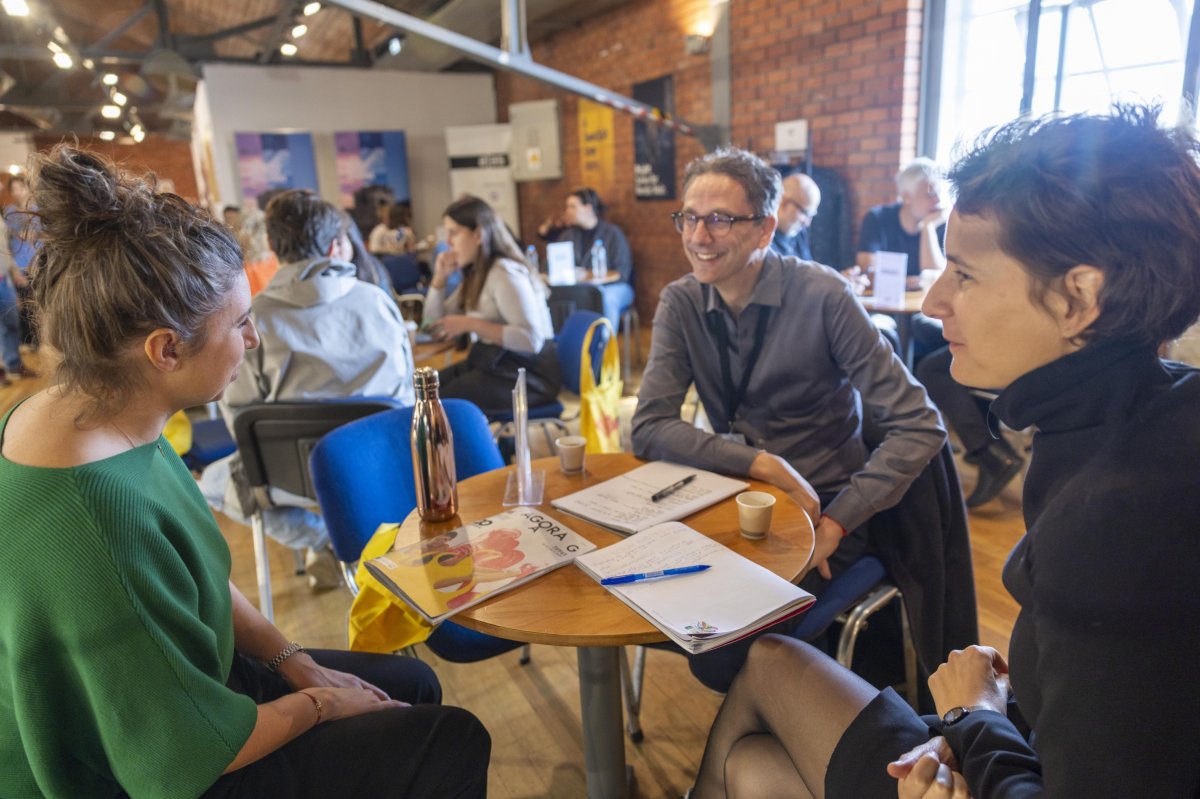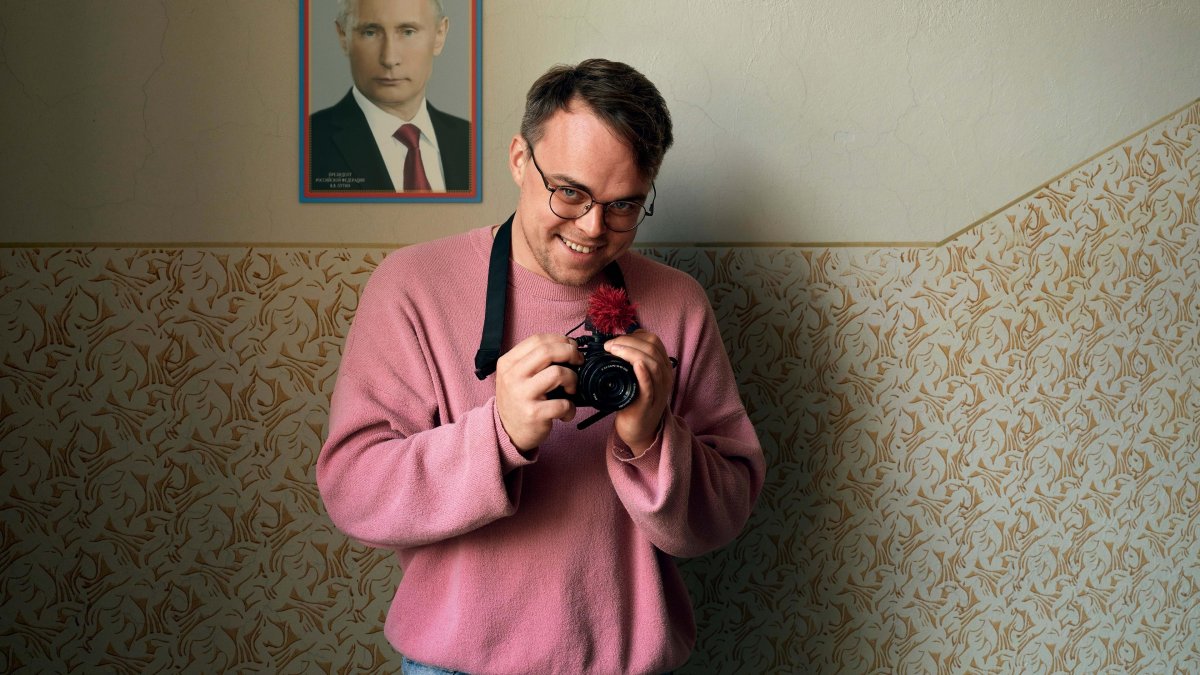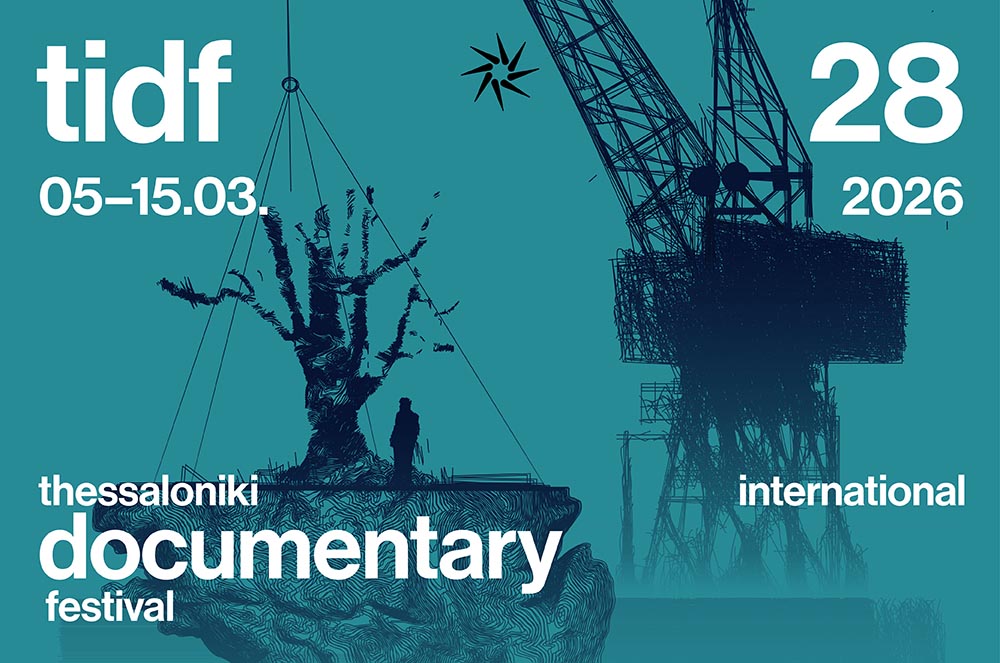On Saturday, November 1st, at the Pavlos Zannas theater, the audience of the 66th Thessaloniki International Film Festival had the opportunity to attend a fascinating masterclass, titled “Casting in the Age of Technology. Finding the Soul of a Story.” The masterclass is part of the new collaboration between the Festival and the International Casting Directors Association (ICDA), in an attempt to highlight the particularities, the challenges, and the crucial role of the multifaceted art of casting.
The event was moderated by Alexandros Diakosavvas, the Festival’s General Coordinator of Artistic Direction, who welcomed and introduced the casting directors Tanja Grunwald, Yngvill Kolset Haga and Lucinda Syson, as well as the Head of the digital platform Filmmakers Europe, David Zitzlsperger, to the audience. “It is a great honor to have you here. For industry professionals, this is a pivotal year, as both the European and the American Film Academy have integrated a Casting Award. It is both a great step forward and an important recognition of your work,” he initially stated. Lucinda Syson, a casting director involved in some of the greatest cinematic works, such as Alfonso Cuarón’s Children of Men (2006), and Gravity (2013), Christopher Nolan’s Batman Begins (2005), and Stephen Gaghan’s Syriana (2002), agreed that it is indeed a significant recognition: “We have worked especially hard to make sure our contributions to the creative process are acknowledged as being of equal value,” she added.
Taking the question of what truly sets a casting director apart from an agent as a starting point, Alexandros Diakosavvas gave the floor to Tanja Grunwald, the casting director who has worked with some of the greatest names in Scandinavian and global cinema, and has also selected the cast for films that have left their mark in recent years, such as Magnus von Horn’s The Girl with the Needle (2024), Ruben Östlund’s Triangle of Sadness (2022), and Thomas Vinterberg’s Another Round (2020), among others. “These are two entirely different specialties,” Tanjia Grunwald replied. “As casting directors we meet with actors, we observe casting calls and we choose the people who will make up the final ensemble. On the other hand, agents are the people who represent the actors. They are, in other words, the people who connect actors with casting directors. Essentially, their role is to bring actors into the marketplace”, she concluded.
As for the lack of funding, the disadvantageous position in which casting directors find themselves in at times, and the difficulties caused by their absence in a production, Yngvill Kolset Haga, a casting director who has collaborated with Joachim Trier on some of his most significant films, such as Sentimental Value (2025), and The Worst Person in the World (2021), she remarked: “These days, anyone can shoot a genuinely good film with their phone, since what matters now is the story, not the cinematography. In reality, the casting directors’ involvement can enhance this story. Part of our job is to be aware of all the available actors and find ways with which they can contribute to storytelling”. David Zitzlsperger, Head of the digital platform Filmmakers Europe, which serves as a hub of communication and connection between actors, agents, casting directors, and producers, also recognized that it is an inherently creative and anthropocentric process: “Before I started working, I believed that the job of a casting director was to organize the auditions. Ultimately, this process accounts for a very small percentage of our work. On our part, as Filmmakers Europe, we have created a digital tool to facilitate the process, although its role is primarily a supporting one. This job is profoundly human,” he stressed.
Then, Lucinda Syson highlighted the importance of great chemistry between the cast, dubbing it ‘a personal bet’ for casting directors: “Simply by changing the actor, the energy of the entire film production shifts. Instincts play a key role throughout this process. Often, you must support your position with zeal, even if your director or producer disagrees.” Tanja Grunwald went on to add that the cast shapes the film’s identity; it is a decisive factor for the audience’s final experience. In turn, Yngvill Kolset Haga emphasized the importance of producers providing both the necessary time and resources, so that casting directors can work effectively and give actors the space they need to express themselves artistically. She also gave a piece of advice to emerging actors; to not reject minor roles, since such collaborations can lead to something far greater.
Next, the focus of the discussion shifted to how casting directors’ work is being redefined through the new technologies, from digital databases to AI tools. David Zitzlsperger noted: “I think the greatest misconception about these technologies is the illusion that they are here to replace people. I’m of the opinion that they have a supporting role. The knowledge emerging from the coexistence of two people interacting with each other in the same room can not be replaced by a mere tool”. The speakers agreed with David Zitzlsperger, and Yngvill Kolset Haga added: “If someone were to sidestep some glaring errors AI does, it is a remarkable tool that offers the opportunity to connect with professionals from all over the world. Think about the scale of the opportunities created in this manner,” she concluded.
All the panelists began from the same starting point; the fact that modern technological tools facilitate a series of processes, as well as the entire organizational process. Now, immediate communication with industry professionals is made possible via email, casting calls can be held via zoom and actors can send self-tapes, thus participating in auditions no matter where they are based. These accommodations create equal opportunities: “Especially following the pandemic, the practice of self-tapes has become more widespread,” Tanja Grunwald stressed. “Nowadays, using digital tools, an actor who lives in a remote region can participate in auditions they would never have had the opportunity to attend otherwise,” she added. At this point, Yngvill Kolset Haga mentioned: “In the past, if a casting agency sought a Greek actor in London, they would search for the best possible result locally. Now, they can head directly to the source.” Lucinda Syson added: “An algorithm can suggest actors and actresses based upon certain biometric identifiers, but the ultimate choice requires more research. The relationship between a director and their actor is ‘erotic’ in a way. The job of a casting director is to find a person who not only has the external features required, but also the ability to work harmoniously with the director.”
Referring to the core of the art of casting, the panelists agreed that it is inherently anthropocentric: “The soul of the entire casting process is within the actor, how they will embody the character, how they will connect with their collaborators, how they will bring a text to life and flesh out the story,” Lucinda Syson pointed out. Tanjia Grunwald added: “The results are never predetermined when we talk about interpersonal relationships. Both sides must be willing to meet in the middle and explore what may emerge through their interaction.” Yngvill Kolset Haga added: “Indeed, technology can be a wonderful thing, because it permits two people to meet at the same place. Technology can obliterate the distance and offer us the mechanisms required to resolve numerous problems.” Providing a brief overview, David Zitzlsperger said: “First and foremost, as a spectator who loves cinema, I believe that you feel rather than see the results that come about from the contributions of a casting director. The path each casting director follows is entirely subjective. If you were to ask every colleague within this room how they ended up here, every single one would describe a different path. This is precisely the trajectory that will enrich your work.”
When asked by the audience whether queer roles in film must be exclusively portrayed by queer actors, Tanjia Grunwald replied in the negative, saying: “Something like this would be very limiting for both parties.” Addressing different questions, she outlined the criteria with which casting directors approve or reject their projects, Yngvill Kolset Haga emphasized they do not always have the luxury of rejecting a project: “I think the final decision has more to do with the story; to what extent you can comprehend and connect with it, whether the genre resonates with you, and if the final outcome on-screen seems gratifying.” As for whether there is a chance that real actors may be replaced entirely by AI models, Lucinda Syson was reassuring, saying: “The actors’ imperfections are what makes them stand out. I believe this is an irreplaceable feature that cannot be replicated by AI. On the same topic, Yngvill Kolset Haga added: “My interest in actors goes beyond feature films. We talk about them outside the boundaries of the roles they embody and the context of film production. I believe that, at this point in time, we are a long way away from discussing a character being portrayed by AI,” she concluded.




